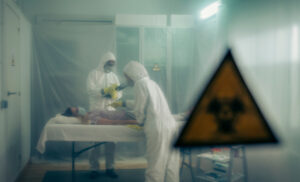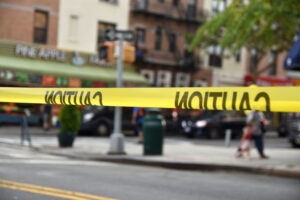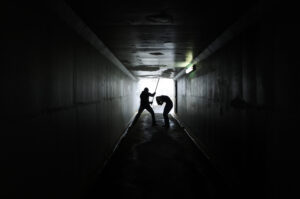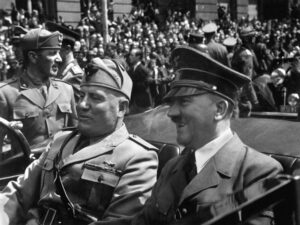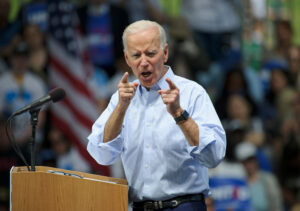After the British Labour Party’s election victory in May 1997, the new Prime Minister, Tony Blair, declared that one of his first priorities was to be the securing of a peace settlement for Northern Ireland. For over 30 years the so-called ‘Troubles’ had blighted the lives of the province’s citizens as paramilitary forces belonging to the two main religious groups, Protestants and Catholics, had waged a vicious and bloody sectarian war against one another and against the British troops stationed there. New life was now breathed into the stalled peace talks, and they received strong support from the Clinton administration in the USA. In April 1998, less than a year after taking office, Blair was able to sign the historic Good Friday Agreement with Irish leaders, establishing a devolved power-sharing assembly and executive for Northern Ireland and defining a new relationship between the United Kingdom and the Irish Republic.
Just four months later the fragility of the new agreement was demonstrated starkly when a huge 225-kg (500-lb) car bomb exploded in the center of Omagh, a small market town in the farming country of County Tyrone. It was a Saturday afternoon in late summer and the town was crowded with shoppers. A telephone warning was issued but its vagueness meant that police were in fact evacuating the wrong area when the bomb detonated. The carnage was indiscriminate; both Protestants and Catholics died, and the heart was ripped out of a previously tight-knit community.
A dissident republican group, the Real IRA, claimed responsibility for the bombing. This attempt to derail the fledgling peace agreement failed, however, and the outrage was roundly condemned by all parties. The subsequent police investigation was heavily criticized for its failure to identify the perpetrators and apparent reluctance to press criminal charges.
When: August 15 1998
Where: Omagh, County Tyrone, Northern Ireland
Death toll: 29 people were killed in the blast and hundreds suffered appalling injuries.
You should know: To this day only two people have been tried in connection with the bombing. One was acquitted and the other’s conviction was later quashed. A number of victims’ families pursued a civil action through the courts which in June 2009 resulted in a £1.6m award of damages against four named leaders of the Real IRA.








